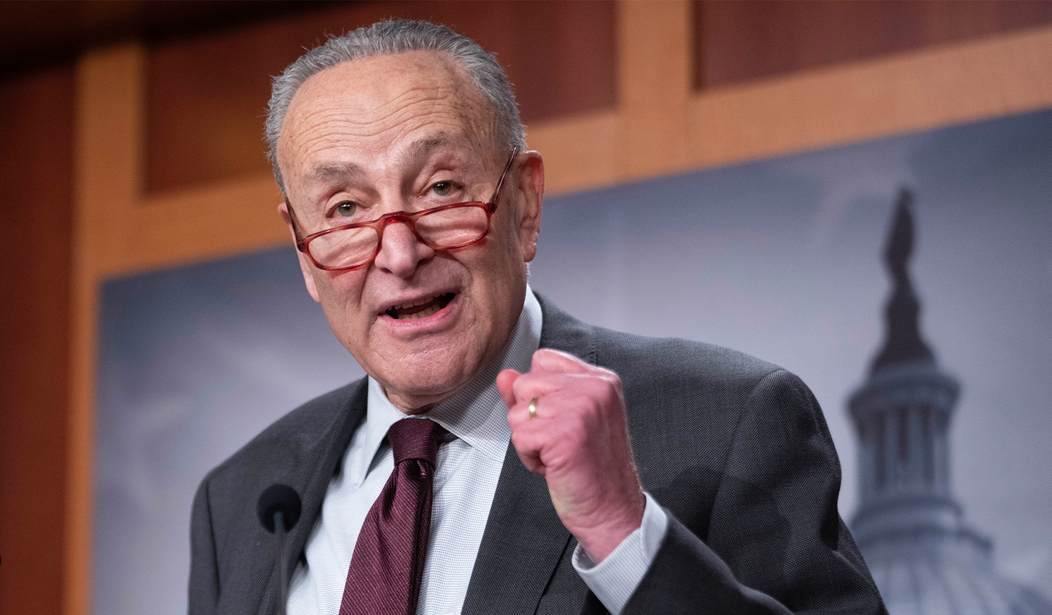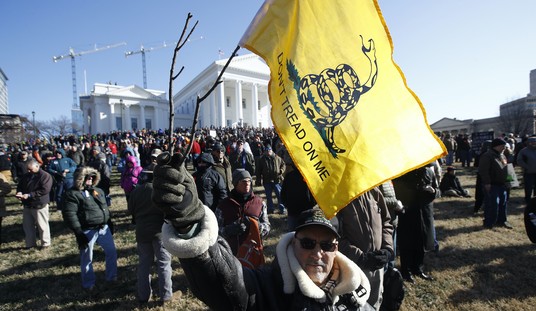We knew going in that Chuck Schumer’s bid to bring an “assault weapons” bill to the floor of the Senate for a vote was an act of political theater, but I didn’t realize that it was actually a two-act play until I ran across this puff piece on Sen. Martin Heinrich and the new “GOSAFE Act” that was published not long after Schumer’s attempt to invoke unanimous consent was predictably (and rightfully) blocked by Republicans. I had wondered why Schumer brought up S. 25, the “assault weapons ban” bill introduced by the late Sen. Dianne Feinstein rather than trying to move the latest iteration of a semi-auto ban, but once I saw the headline “Senators tackle gun violence anew while Feinstein’s ban on assault weapons fades into history” it became crystal clear: the doomed vote was meant to signal a closing of one chapter of anti-gun politics on Capitol Hill and the heralding of a new strategy for gun-banners.
The report is meant to highlight the “new iteration of gun violence prevention”, complete with a misleading pitch about what the GOSAFE Act would actually do.
Rather than try to ban assault weapons outright, their legislation would essentially regulate such guns to have permanently fixed magazines, limited to 10 rounds for rifles and 15 rounds for some heavy-format pistols. The idea is to reduce a shooter’s ability to fire off dozens of rounds in seconds and prevent them from being able to attach a new magazine to keep shooting.
Oh, the GOSAFE Act prohibits plenty of guns outright. The manufacture and sale of any gas-operated centerfire semi-automatic rifles that use detachable magazines would be prohibited, as would any and all “large capacity” magazines. The bill, as currently written, includes a grandfather clause for current owners, but that doesn’t mean it’s not still a ban.
It’s not at all the kind of legislation that is expected to be headed for a vote any time soon in Congress. The senators, along with Democrat co-sponsors Michael Bennet of Colorado and Mark Kelly of Arizona, have no Republican backers yet. But talks are quietly underway in the Senate as mass shootings hit schools, college campuses, concerts, bars, night clubs, churches, a movie theater and bowling alley across the U.S.
The effort comes as Feinstein, whose groundbreaking 1994 assault weapons ban expired after 10 years, was never again able to see her legislation revived, as the nation’s gun violence only worsened. She died at age 90 in October.
Senate Majority Leader Chuck Schumer had partnered with Feinstein years ago on the assault weapons ban and tried unsuccessfully Wednesday to push it ahead for a vote. “We need it more now than ever,” he said.
But that’s not the ban that Schumer actually wants these days, is it? The thrust of Moscaro’s story is that Feinstein’s ban is old and outdated, and it’s Heinrich’s supposedly new and improved ban that’s going to be the anti-gun standard going forward.
While Moscaro did include a quote from NRA-ILA Executive Director Randy Kozuch, the vast majority of the piece was dedicated to uncritically promoting the GOSAFE Act, including Heinrich’s implausible statement that the bill was written “in a way that hopefully, one, we can eventually pass, and, two, that can stand up to Supreme Court — in this Supreme Court, not in the 1990s Supreme Court.”
There’s no chance that the GOSAFE Act has the sixty Senate votes necessary for passage, and unless this Supreme Court is ready and willing to invalidate every bit of Second Amendment jurisprudence it’s issued going back to Heller, I don’t see any way that Heinrich’s bill would pass muster under the text, history, and tradition test laid out by the justices in the Bruen case. Not only would the GOSAFE Act prohibit an entire class of arms, it also gives the Attorney General sweeping new powers to approve or deny any new semi-automatic firearm designs before they can be produced. Good luck finding a historical analogue for that kind of federal authority at the time the Second Amendment was ratified.
The curtain has closed on Dianne Feinstein’s gun ban bill, but the GOSAFE Act is going to be a major part of the gun control lobby’s plans going forward, and I doubt the language of the legislation is going to be confined solely to Capitol Hill next year. Anti-gun politicians in state legislatures are likely to adopt the language for their own gun ban bills, and we may even see states that have already enacted bans on so-called assault weapons move to replace the current language with the broader restrictions of Heinrich’s Semi-Auto Ban 2.0.









Join the conversation as a VIP Member